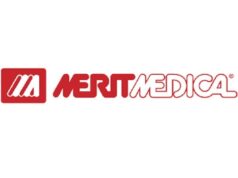One-year outcomes data from the first cohort of the GARFIELD (Global anticoagulant registry in the field), an independent academic research initiative, has provided insights into the elevated stroke risk among subpopulations of patients with atrial fibrillation (AF). The findings, from eight abstracts presented this week at the ESC congress 2013, collectively show that anticoagulant therapywhich is known to significantly lower stroke risk in AF patients-is consistently under-utilised among those at-risk atrial fibrillation patients.
GARFIELD is led by an international steering committee under the auspices of the Thrombosis Research Institute (TRI), London, UK. It is an international, observational, multicentre, prospective study designed to understand the global burden of AF.
“These one-year data from GARFIELD illustrate that evidence-based stroke prevention guidelines are not always followed in everyday clinical practice,” said The Lord Ajay Kakkar, professor of Surgery at University College London and Director of the TRI, London UK. “Taken together, these new findings re-emphasise what has been observed in clinical trials regarding stroke risk in AF patients. The research suggests there are opportunities to improve patient outcomes through more consistent application of best practice and adoption of the many innovative therapies to prevent stroke in high-risk AF patients.”
The data presented at ESC Congress 2013 are from the first of five GARFIELD cohorts. The first cohort includes a total of 10,614 patients with non-valvular AF and at least one investigator-determined additional risk factor for stroke, recruited from 540 randomly-selected sites in 19 countries. Of these patients, 5,089 were recruited retrospectively as a validation cohort and 5,525 were recruited prospectively and comprise the study populations in these abstracts. ESC Guidelines for the management of atrial fibrillation recommend that all patients at high risk of stroke be prescribed anticoagulation therapy with vitamin K antagonists (VKAs), unless contraindicated. High stroke risk is defined as a score >/=2 on the CHA2DS2-VASc risk score. Previously reported baseline data showed that in Cohort 1, 82.6% of patients had CHA2DS2-VASc >/=2 but only 62% of these patients received anticoagulant therapy.









